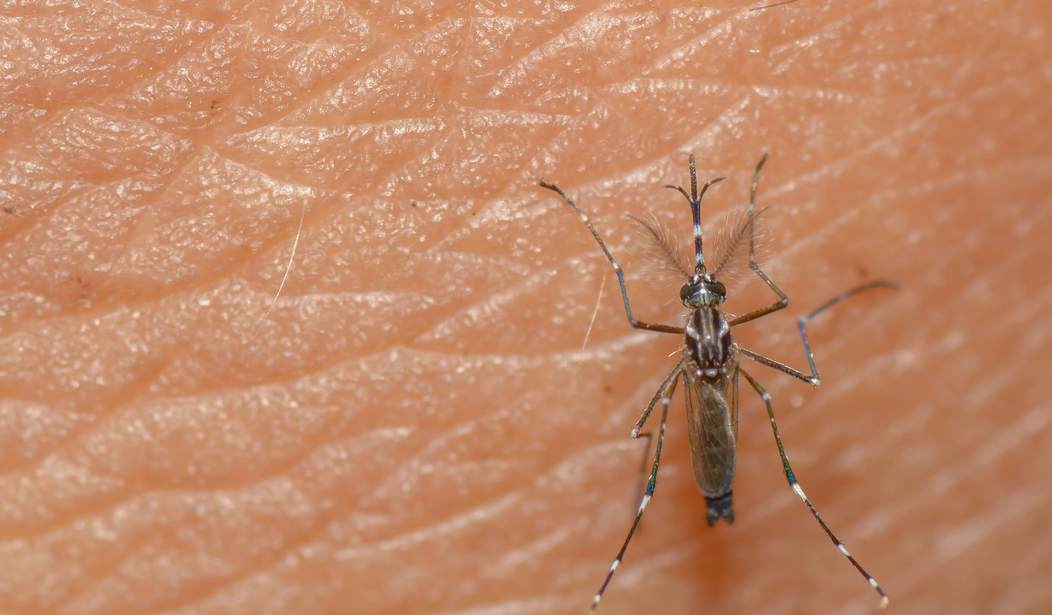WASHINGTON — Senate Democratic leaders today warned that climate change would further the spread of Zika virus, which they said could be worse for Americans than the Ebola virus.
Minority Leader Harry Reid (D-Nev.) told reporters outside of a closed policy luncheon on Capitol Hill that Dems are still pressing for a vote on President Obama’s $1.9 billion emergency funding request to battle the mosquito-borne virus.
“This is an emergency if anything ever were an emergency. We must do something and do it now. The Senate should not leave here this week without addressing the legislation that deals with Zika virus,” Reid said. “…We’re not going to leave here until something — it’s up to them. If they refuse to come up with a plan to help, we’re going to continue to push as hard as we can.”
Senators met last week with the secretary of Health and Human Services and representatives from the Centers for Disease Control and Prevention and the National Institutes of Health. “They all say this is a problem that has to be addressed now. It is an emergency,” Reid added.
Minority Whip Dick Durbin (D-Ill.) accused Republicans of stalling “at the expense of the public health of thousands of people.”
“We know what’s happening here. It’s getting a little warmer in America. The Republicans are in denial about climate change, but in the real world, we can feel it outside in April when we’re dealing with 80 degree temperatures in the Midwest. That’s unusual, but it’s also an invitation for breeding mosquitoes and putting Americans at risk all across the United States,” Durbin said.
“It’s time for Republicans to accept this responsibility. They are in charge of Congress. They set the agenda in Congress. They establish the priorities. And if they believe that they can save some money some way or another by ignoring a public health emergency, they’re just wrong,” he added.
Sen. Chuck Schumer (D-N.Y.) stressed that “we have to develop a vaccine as quickly as possible — we need more knowledge about the disease.”
“Nobody knows the incubation period, how long after a woman’s had it should she refrain from being pregnant, how long a male retains the ability to transmit it through sexual contact,” he said. “There are so many different questions we need answers for, and they said they have a plan to help us stop Zika. What they’re missing is dollars.”
Senators appear to be close to forging an agreement that would fund Zika with less than Obama’s request, around $1.1 billion. Whether that would get through the House, which pressured the administration to first utilize unspent Ebola funds, is another matter.
“There’s no path because you have hard right group who say we don’t want to spend money on anything and it paralyzes them, even when there’s a national emergency,” Schumer said. “But on something major like this — two years ago, they chastised us on not being ready on Ebola, president and the democratically run Senate. Well, where are they on Zika? Which, if anything, probably presents a greater threat to American than Ebola. Republicans are tied in a knot and don’t know what to do. So their response has amounted to telling people to buy fly swatters and bug spray. That’s not going to keep us safe.”
Majority Leader Mitch McConnell (R-Ky.) told reporters on the Hill that several senators are involved in the dealmaking right now, including Sen. Roy Blunt (R-Mo.).
“We’ve spent a lot of time since the proposal, but particularly over the last 10 days, trying to find the right number and the right way to deal with this and intend to,” Blunt said.
Sen. John Cornyn (R-Texas) said the unspent Ebola funds were essentially a “down payment” on Zika research and prevention.
“And we’re going to do everything that’s necessary in a responsible way to deal with this threat because we know it’s real,” Cornyn said. “We hope that our scientific community can develop a vaccine before long to deal with this, and protect the public health, particularly of women of childbearing age, but of the public generally.”
As of April 22, according to the CDC, there are 388 cases of Zika in the United States. All were linked to travel. Thirty-three of the cases involve pregnant women, and eight cases were sexually transmitted.
In Puerto Rico, the virus has begun to spread locally. Five hundred cases of domestic virus transmission are reported in the U.S. territories.
The CDC adds that people “very rarely die of Zika,” with some asymptomatic cases and some infected displaying symptoms including fever, rash, joint pain, conjunctivitis, muscle pain or headache.
Heritage Action has demanded that new Zika funding be offset with spending cuts — with the suggested targets being climate-change programs and the EPA.
“Every day, all across the country, Americans are faced with difficult financials decisions that require sacrifice and prioritization,” the group said in a letter to chairmen of the House and Senate Appropriations committees. “Lawmakers should hold themselves to the same standard.”









Join the conversation as a VIP Member